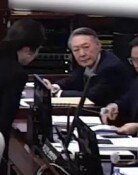Foreign Lawsuits Threaten Exporters
Foreign Lawsuits Threaten Exporters
Posted December. 13, 2005 07:21,
To describe lobbying in American politics in Korean terms, one can say that it is similar to Gap-Eul relations (Gap grants a favor while Eul asks for a favor), where the politician is Gap and the lobbyist is Eul. In most cases, lobbyists make requests of politicians, and politicians make or abolish laws.
However, the food chain of the lobbying industry in Capitol Hill, sometimes referred to as K Street Confidential, overthrows such accepted perceptions. This is the part that Korean diplomacy should not overlook.
Lining Up Politicians
Former Republican Congress Majority Leader Tom DeLay, who quit under criminal indictment, and his successor Roy Blunt, are true artists in maneuvering votes. Over the past four to five years, they have passed over 50 bills that have included large-scale tax cuts, relaxing ownership of the media, abolishing environmental regulations, and lowering safety standards in the workplace, which is all just as the way Republicans have wanted it.
It is an amazing feat indeed. What is their secret? K Street Confidential uses its power to line up congressional votes by using lobbyists.
The American League of Lobbyists First-Vice President Larry Bory, whom I met at the Rayburn Building on Capitol Hill, picked the bill to delete the tax cut article to foreign exportation companies, which heated up in Washington last year, as an example. When Europe criticized the U.S. that its tax cuts were unfair trade practices in June, another alternative bill that erased the tax cut benefits but inserted other tax exemption articles was proposed. That made export-oriented companies such as Boeing and Honeywell unsatisfied. The potential beneficiaries of the bill, such as companies that sell domestically, welcomed the new proposal. The congressmen were naturally divided according to their states, and the amendment failed to pass a few times.
Congressman Blunt, working under Majority Leader DeLay as GOP floor leader, used lobbyists to collect political funds to change the minds of opposing congressmen. Despite the internal split within the GOP, the result was the passing of the bill, 251-177. It wasnt a tight race as expected. The Washington Post even quoted a senior congressman saying that the intervention of corporate lobbyists was critical.
Desperate for Campaign Funds
Did congressmen change their minds due to the persuasion of lobbyists? Such a thing is possible because of the U.S. system that put virtually no limits on using election campaign funds. On average, it costs about $1,000,000 for the campaign of a congressman, which takes places every two years. This translates into having to raise about $10,000 every week. However, the law stipulates that individuals cannot donate more than $2,000, and large corporations or unions cannot donate more than $10,000. Hence, congressmen are on their own to find donors for their funds, starting the day after elections.
Lobbyists help politicians out of such toil and labor. That is analysis of Jeffrey Birnbaum, who covered the lobbying industry for Wall Street Journal and Fortune Magazine.
Both GOP Congress leaders had fund raising organizations named DeLay Inc. and Blunt Inc., with Inc. an abbreviation for incorporated, after their names. All funds to support GOP candidates in a close race came out from here. That is why it is not an exaggeration when it is said that the Democrats see them their main enemy number one and two.
When one looks at the National Republican Congressional Committee (www.nrcc.org) website, there 12 fund raising events for congressmen scheduled for a single day, December 14. It costs about $500 for an individual meal, and $1,000 for a PAC, a group created by corporations and lobbyists to support politicians. That is the average going rate in Washington.
In an interview with Dong-A Ilbo, Alex Knott, the political editor of research group Center for Public Integrity, a lobbyist monitoring organization, said that the lobbying industry is now seeking to replace the press as the fourth branch after the legislative, judicial and administrative branches.
K Street Confidential
The GOP leadership, having acknowledged the political value of lobbyists early on, started to act in 1994. The front runner was Republican Senator Rick Santorum. In the book, The Right Nation, a guidebook for conservatives, a closed meeting held every Tuesday morning for a couple years in a conference room inside Capitol Hill is depicted. It is a place where it is discussed which lobbyist will go to the administration or federal government, and which GOP partisan will be placed as a high-income lobbyist.
The logic is simple. Lobbyists faithful to the GOP should take key posts, to increase unity, as well as the success rate of lobbying. When lobbying is successful, the demands from corporations for lobbying also jump. That way, a large sum of campaign funds can be raised, and with the monetary superiority, the GOP can continue to keep a majority in Capitol Hill. Knott commented, There is no doubt that it is designed for the long-term rule of the GOP.
The Future of K Street Confidential
In Washington D.C.s lobbying world, a resume with Tom DeLays Aid on it is a guarantee of becoming a powerful lobbyist. Presently, 13 lobbyists that worked for DeLay as chief secretary, public relations secretary, and policy advisor have all been successful.
A system has been created where some corporations bid to hire them and reap profits, and other competing corporations have to reluctantly rely on the GOP lobbying source pool. As a result, a report by Center for Public Integrity points out, about two thirds of lobbyists are Republican. In other words, K Street Confidential, which started in 1994, is seeing results.
Although some think that the GOPs K Street Confidential is also in danger the way Congressman DeLays political career is danger due to lobbying scandals, more people think that the Congress-K Street-Interest Group framework will continue to exist as it is.
Seung-Ryun Kim srkim@donga.com



![[단독]김경 “1억원 줄때, 강선우도 함께 있었다” 자수서](https://dimg.donga.com/c/138/175/90/1/wps/NEWS/IMAGE/2026/01/14/133148772.5.jpg)



